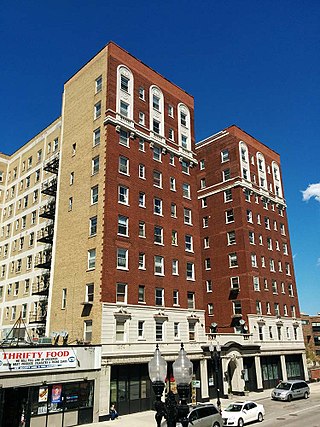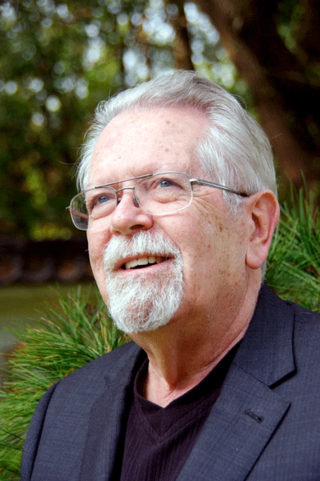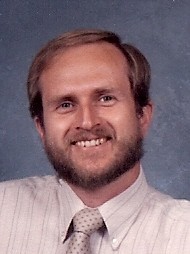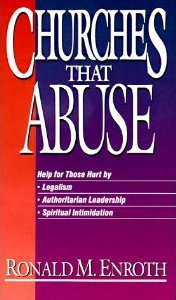The Christian countercult movement or the Christian anti-cult movement is a social movement among certain Protestant evangelical and fundamentalist and other Christian ministries and individual activists who oppose religious sects that they consider cults.
The Satanic panic is a moral panic consisting of over 12,000 unsubstantiated cases of Satanic ritual abuse starting in the United States in the 1980s, spreading throughout many parts of the world by the late 1990s, and persisting today. The panic originated in 1980 with the publication of Michelle Remembers, a book co-written by Canadian psychiatrist Lawrence Pazder and his patient, Michelle Smith, which used the controversial and now discredited practice of recovered-memory therapy to make claims about satanic ritual abuse involving Smith. The allegations, which arose afterward throughout much of the United States, involved reports of physical and sexual abuse of people in the context of occult or Satanic rituals. Some allegations involve a conspiracy of a global Satanic cult that includes the wealthy and elite in which children are abducted or bred for human sacrifice, pornography, and prostitution.

Jesus People USA (JPUSA) pronounced: ǰ-pu-sa is a Christian intentional community in Uptown, on the North Side of Chicago, Illinois.

John Gordon Melton is an American religious scholar who was the founding director of the Institute for the Study of American Religion and is currently the Distinguished Professor of American Religious History with the Institute for Studies of Religion at Baylor University in Waco, Texas where he resides. He is also an ordained minister in the United Methodist Church.
Maranatha Campus Ministries was a Charismatic/Pentecostal-oriented Christian ministry founded by Bob Weiner which existed from 1971 to 1990. Its primary outreach was to college and university campuses.
Great Commission Association of Churches (GCC) is a fellowship of independent evangelical Christian churches. The Great Commission church movement began in the United States in 1970. Other associated organizations include Great Commission Ministries (GCM), Great Commission Latin America (GCLA), and Great Commission Europe (GCE). The movement has grown in size and scope through its focus on church planting in the United States and abroad. GCC is a member of the National Association of Evangelicals, and one or more organizations within the movement has continuously been a part of the Evangelical Council for Financial Accountability since 1992.
Ronald M. Enroth was an American professor of sociology at Westmont College in Santa Barbara, California, and an evangelical Christian author of books concerning what he defined as "cults" and "new religious movements" and important figure in the Christian countercult movement.
Carol Giambalvo was an exit counselor who worked with Cult Awareness Network's New York office and chaired on the Cult Awareness Network's national board of directors from 1988 to 1991, and was also on the International Cultic Studies Association's board of directors headed its Recovery Programs, and was responsible for its outreach program. She co-founded reFOCUS, an anti-cult organization for ex-cult members in the United States.

Paul R. Martin (1946–2009) was a psychotherapist, licensed clinical psychologist, author, pastor, and director of the Wellspring Retreat and Resource Center in Ohio. He also worked in private practice in Athens, Ohio. Martin taught psychology, psychopharmacology, and the Biblical basis of behavior for five years at Geneva College, where he was a member of the department of psychology.
Community Chapel and Bible Training Center was a controversial independent church created in 1967 and pastored by Donald Lee Barnett in which he taught his version of Oneness Pentecostalism, later turning into a Unitarian. The church eventually grew to an attendance of over 3,000 before splitting and losing significant numbers in 1988 because of numerous lawsuits brought against Barnett and others in the church leadership for sexual improprieties. Community Chapel became infamous for a practice its leaders advocated known as "spiritual connections." This practice involved seeking intense emotional experiences of love with another person, usually not one's spouse, while dancing together in worship. It was taught at the Chapel that through this experience, Jesus, specially known to the participants as "the glorified Son of Man" because of the teaching of Barnett, was connecting the members of his church together in love as he had always meant them to be.
James Douglas McCotter is an American entrepreneur, the former CEO of Maverick Jets and controversial founder of the "Blitz Movement" which became the Great Commission Association of Churches. He was also a member of the Council for National Policy as well having been a holder of national and international media interests.

Churches That Abuse, first published in 1992, is a best-selling Christian apologetic book written by sociologist Ronald M. Enroth. The book documents cases of churches and other organizations said to be spiritually abusive and the effects these groups have had on their members. The author says that "spiritual abuse can take place in the context of doctrinally sound, Bible-preaching, fundamentalist, conservative Christianity". Enroth outlines the backgrounds of the leaders of these groups and explains how the groups evolved to the point of becoming spiritually abusive.

Robert Passantino, was an American author and journalist who wrote on subjects related to Christian apologetics, philosophy, and the Christian countercult movement.
Religious abuse is abuse administered through religion, including harassment, humiliation, spiritual abuse or religious violence. Religious abuse may also include the misuse of religion for selfish, secular, or ideological ends, such as the abuse of a clerical position.
The University Bible Fellowship is an international evangelical non-denominational Christian entity that originated in South Korea in 1961. It was founded through a partnership between a Korean, Samuel Chang-Woo Lee, and Sarah Barry, an American Presbyterian missionary who was sent to South Korea. The international headquarters of UBF is in Chicago. The group members are concentrated in South Korea, but has chapters in 91 countries including American universities and community colleges. The organization's stated goal is student evangelism.

Dwell Community Church, formerly Xenos Christian Fellowship, is a non-traditional, non-denominational, institutional cell church system. Unlike traditional churches, Dwell is centered on home church activities rather than traditional Sunday morning services. These small groups typically contain 15 to 60 members. Dwell also holds weekly multi-house church gatherings called central teachings. As of February 2009, Dwell has approximately 5,000 members and 300 home churches.

Terry Cole-Whittaker was a New Thought author and United Church of Religious Science minister, and the founder of Terry Cole-Whittaker Ministries and Adventures in Enlightenment.
Ma Jaya Sati Bhagavati, often shortened to Ma Jaya, was a devotee of Hindu Guru Neem Karoli Baba. She founded Kashi Ashram in Sebastian, Florida, in 1976. Jaya's interfaith teachings included a blend of philosophy from many different religions. She was involved in HIV/AIDS activism and hunger alleviation.

Evangelical Ministries to New Religions (EMNR) is a coalition of Christian countercult organizations. It was founded by Gordon Lewis, James Bjornstad, Ronald Enroth, and Walter Ralston Martin in 1982.
Samuel Koranteng Pipim is a US-based Ghanaian author, speaker, and theologian. Trained in engineering and systematic theology, he based his office in Ann Arbor, Michigan, where, up until 2011, he ministered to students, faculty, and staff at the University of Michigan. He has authored and co-authored more than a dozen books. He has spoken around the world at events for youth, students, and young professionals. He helped begin and has sat on the board of directors for the Generation of Youth for Christ organization (GYC), a revival movement of Seventh-day Adventist youth in North America.








